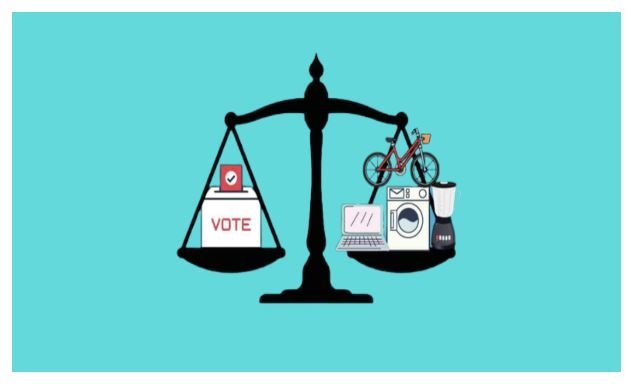
Money Laundering in Indian Political
Campaigns and Elections
In India, political campaigns and elections are monumental undertakings, requiring
substantial time and financial resources. Studies indicate that an aspiring Member of
Parliament in India spends an average of around ₹5 crore to ₹10 crore (approximately
$670,000 to $1.3 million) to conduct a successful campaign at both the party and
constituency levels. The pressing question is: how do these vast sums of money get raised
and sourced? Candidates often dip into their life savings to fund their election campaigns,
be it for district, regional, or national offices. Additionally, some candidates receive
sponsorship from well-wishers, businessmen, and associates through fundraising efforts.
This article examines the various techniques employed to fund political campaigns and
elections in India and the concerning rise of money laundering within this context.
Raising Funds for Political Campaigns and Elections
Funding a political campaign in India is a complex endeavor. It involves substantial financial
commitments, and candidates often resort to multiple sources to amass the necessary
funds. Some common fundraising techniques include:
1. Large Donor Calls or Meetings: Candidates may reach out to affluent
individuals and organizations, soliciting large contributions. These contributions can be
significant in financing campaign activities.
2. Direct Mail Pleas: Candidates send direct mail appeals to a broader base of
small donors. These modest donations can accumulate into substantial campaign funding.
3. Interest Groups and Lobbying: Interest groups and corporations that
have a vested interest in a candidate's success may contribute significant sums to the
campaign, especially if it aligns with their interests.
Money Laundering in Indian Politics
While political campaigns depend on financial resources, the influx of large sums of money
has raised concerns. It can provide a disproportionate advantage to a select few,
contributing to an uneven playing field in politics. Moreover, criminals have devised
unconventional methods to obscure the origin of their ill-gotten funds, and political
campaigns and elections have become one such method.
Understanding Money Laundering
Money laundering is the process of disguising illegally obtained proceeds, making them
appear legitimate or "clean." Criminals attempt to integrate these funds into the financial or
non-financial system, obscuring their criminal origin. This is achieved through a web of
complex transactions, making it difficult to trace the funds back to the criminal. Once
integrated, the funds are used for various purposes, including personal expenses and
lifestyle choices.
Money Laundering Through Political Campaigns and
Elections
Money laundering in Indian political campaigns and elections can occur when a candidate is
sponsored by a criminal. In such cases, the criminal uses their ill-gotten funds to support the
candidate's campaign. This support can include paying party dues, buying votes, and funding
campaign materials and logistics. Once the candidate is elected, the criminal may further
launder their money by using their companies to bid for government contracts through the
politician they sponsored. This manipulation allows the criminal to both gain political
influence and legitimize their ill-gotten gains.
Another method involves providing the candidate with a loan, with or without interest, to
finance their election expenses. Candidates often rely on loans from financial institutions or
affluent citizens due to the substantial costs of campaigning. The criminal offers the funds as
a loan, and the candidate repays it through checks or bank transfers, thereby allowing the
criminal to control and influence the candidate.
Some criminals even enter politics themselves, standing for elections to further their money
laundering activities. They may use their illegal funds to win elections and gain public office,
thereby consolidating their power and influence.
Conduit Contributions and Foreign Funds
Conduit contributions are another money laundering technique where political donations
are made through intermediaries to conceal the true source of funds. This can involve straw
donors who act as proxies to hide the identity of the real donor.


Share:
What are the “red flags” that might alert one to it?
Preventing Money Laundering in Political Campaigns and Elections